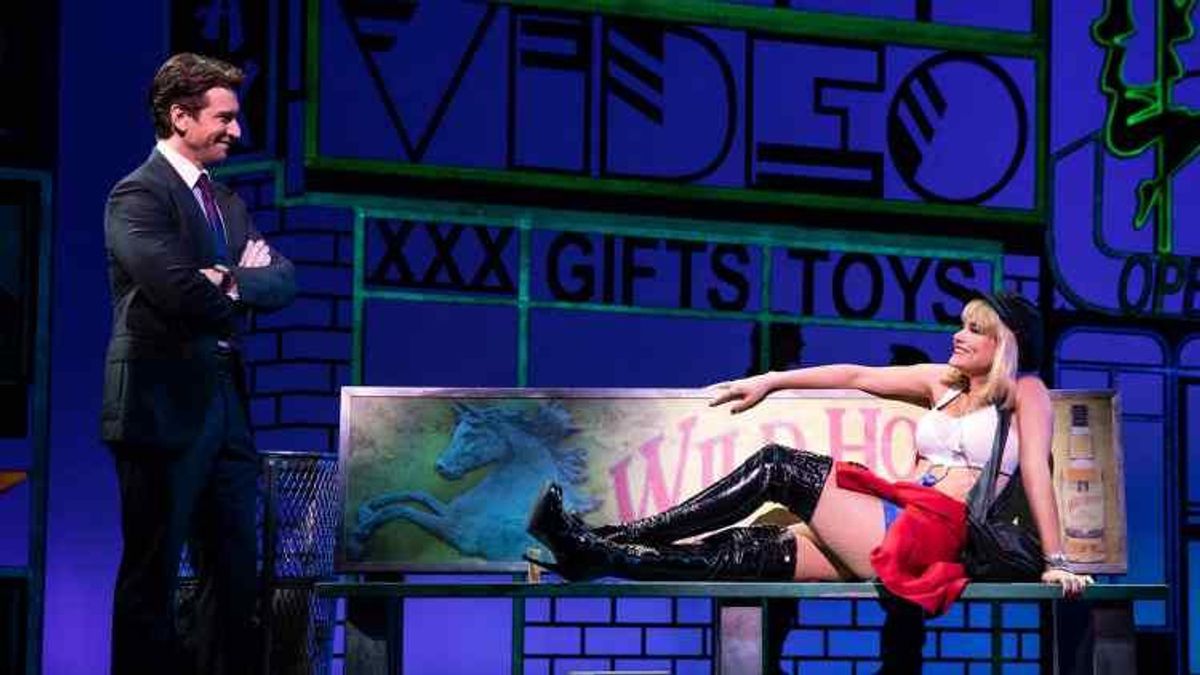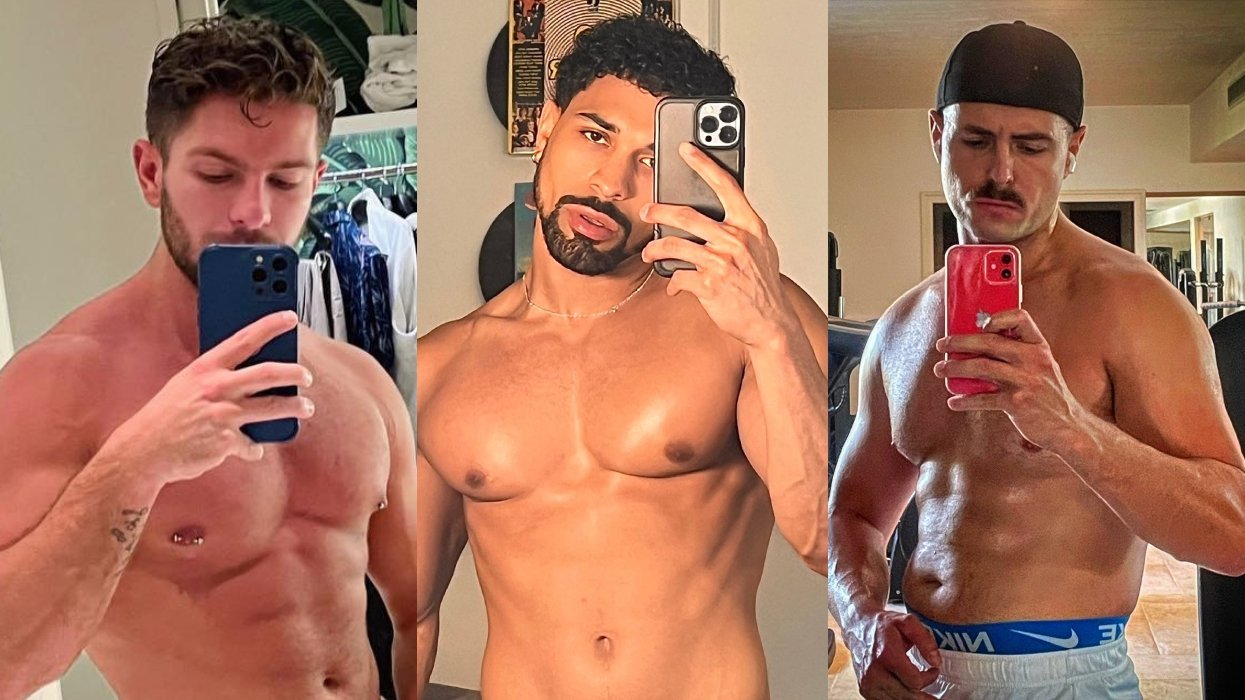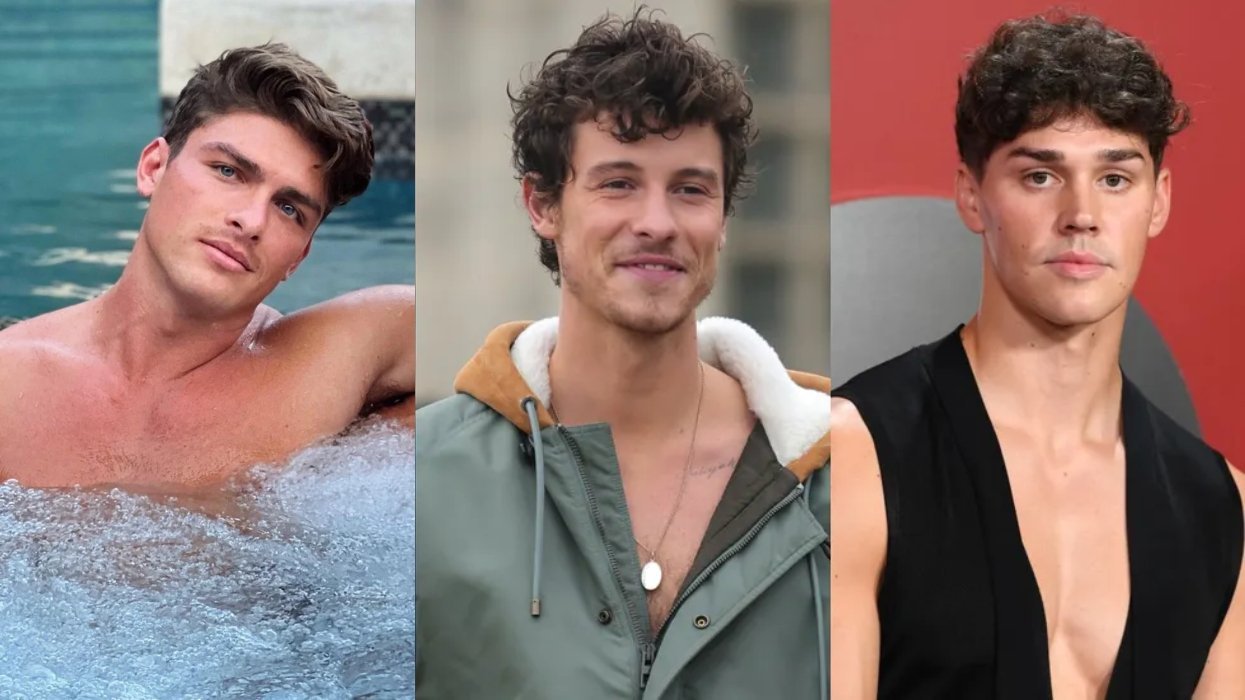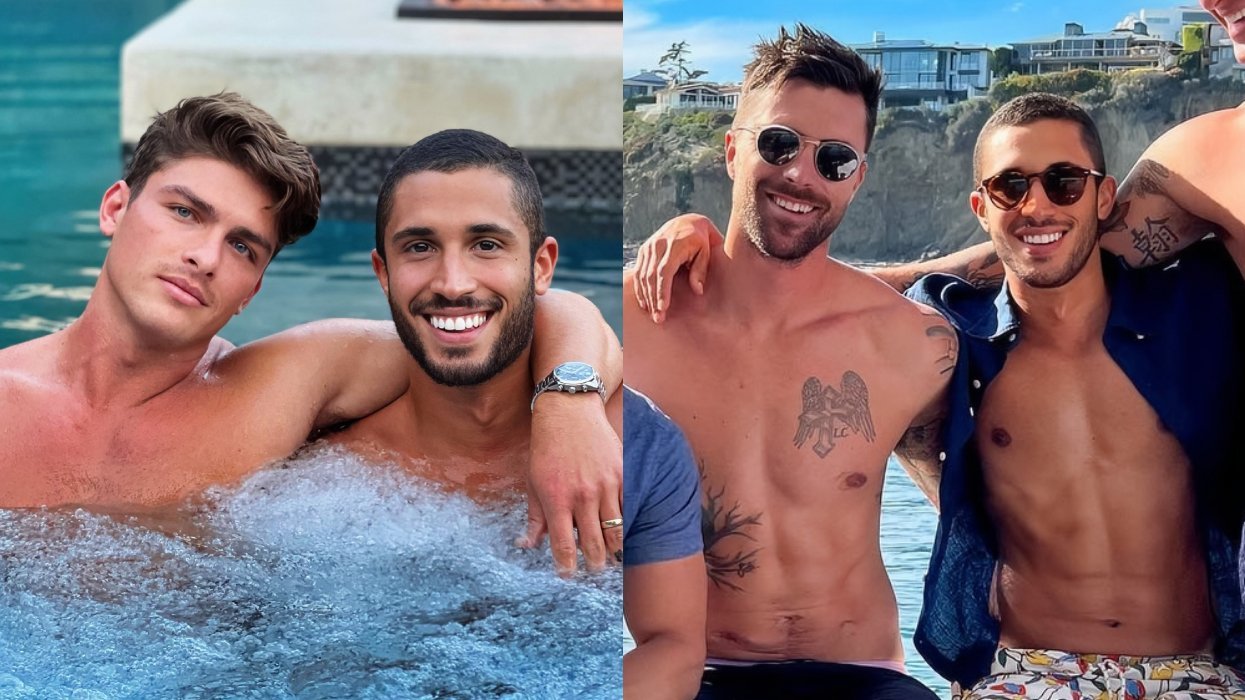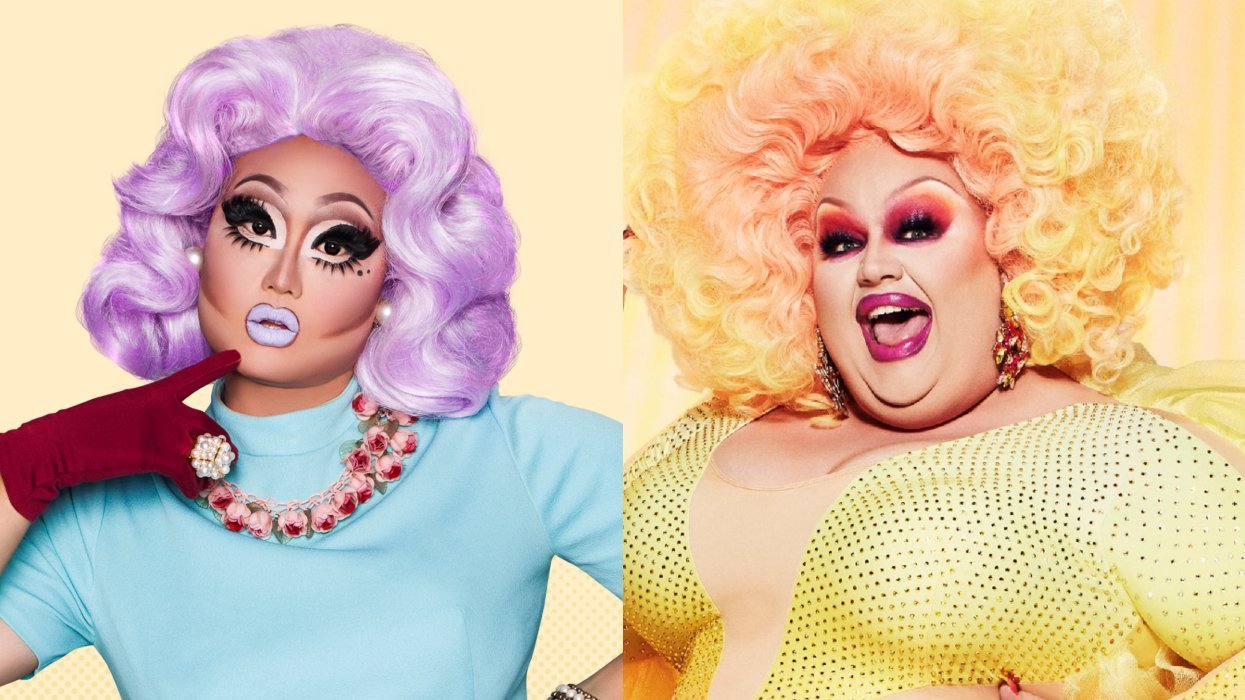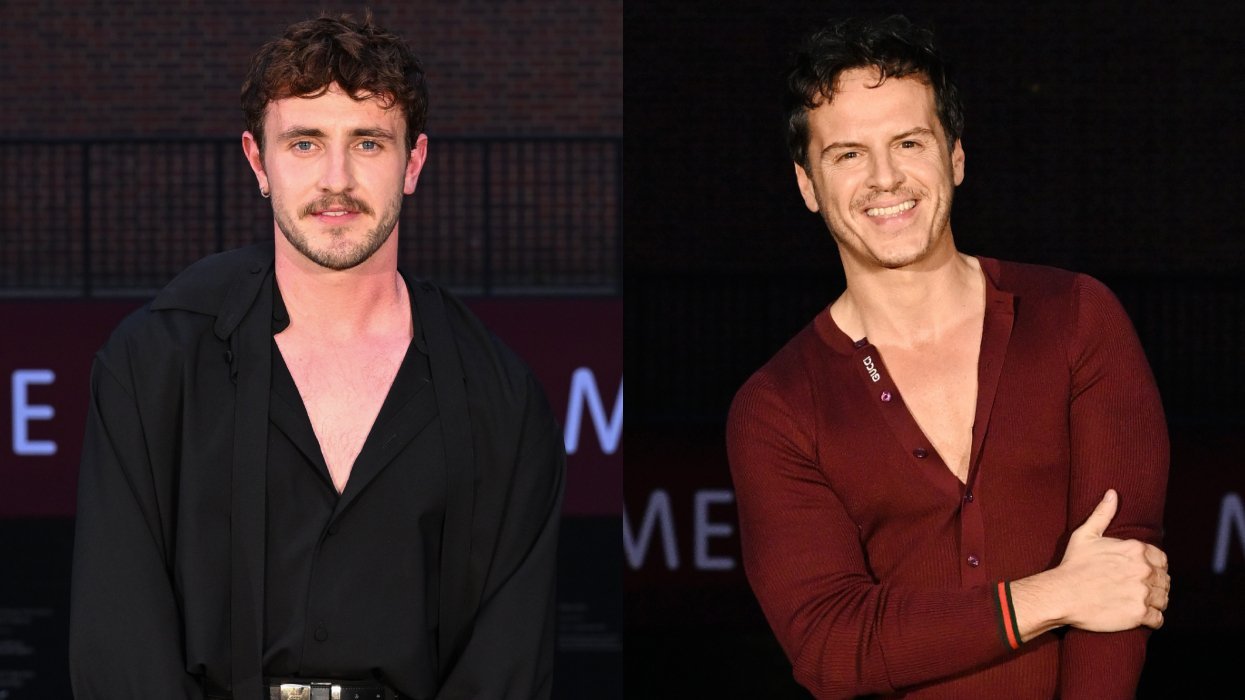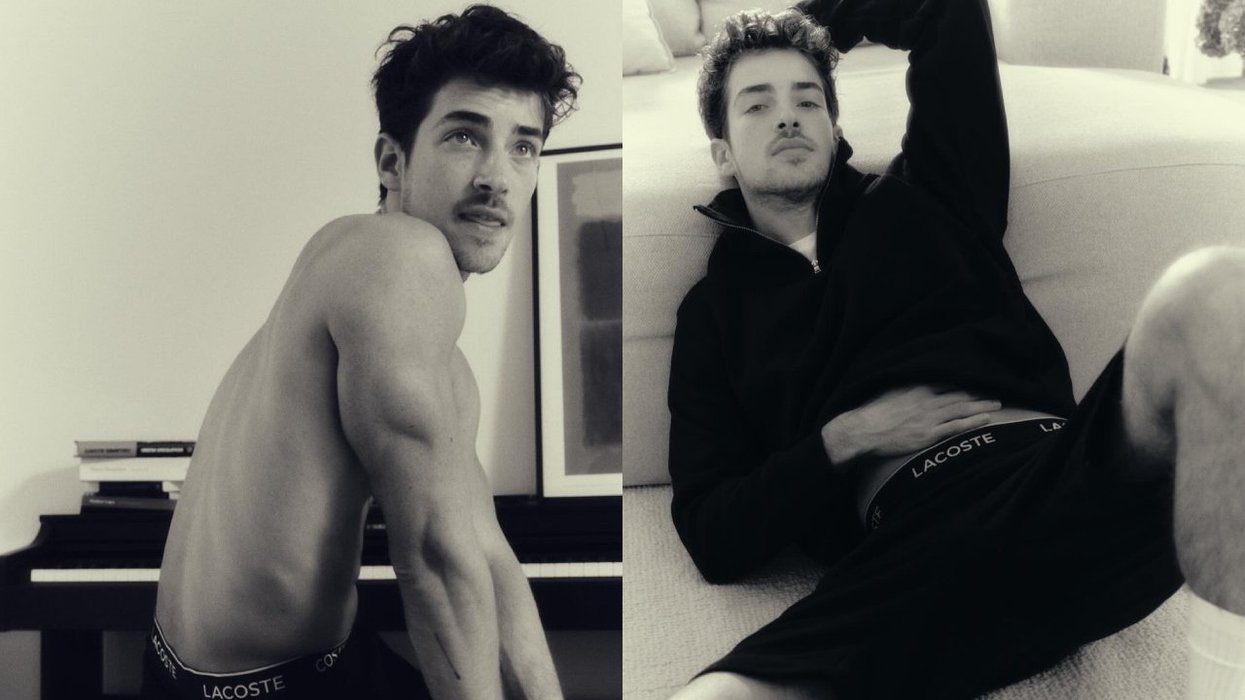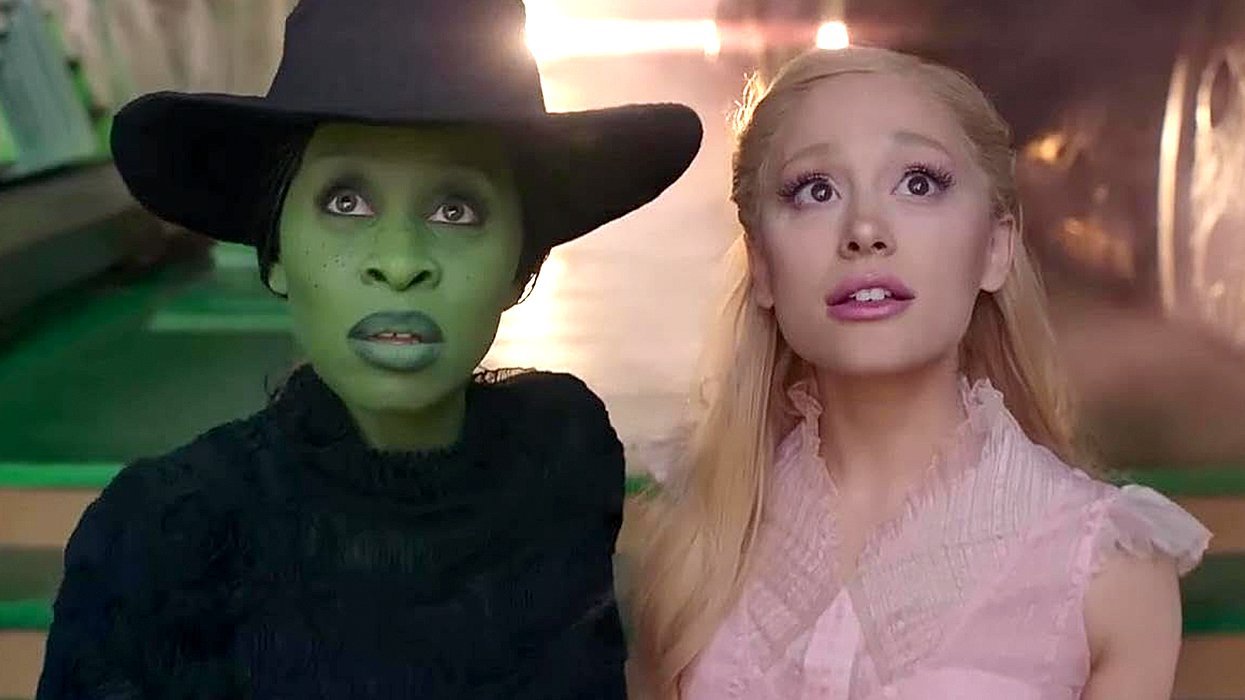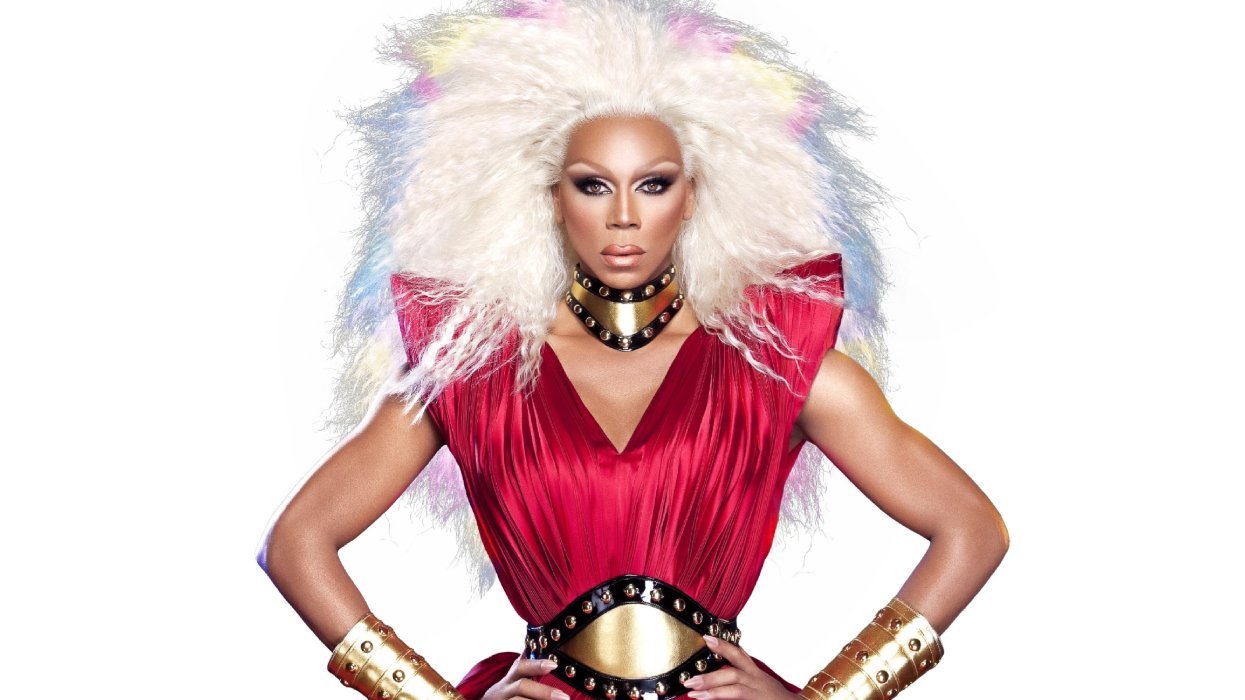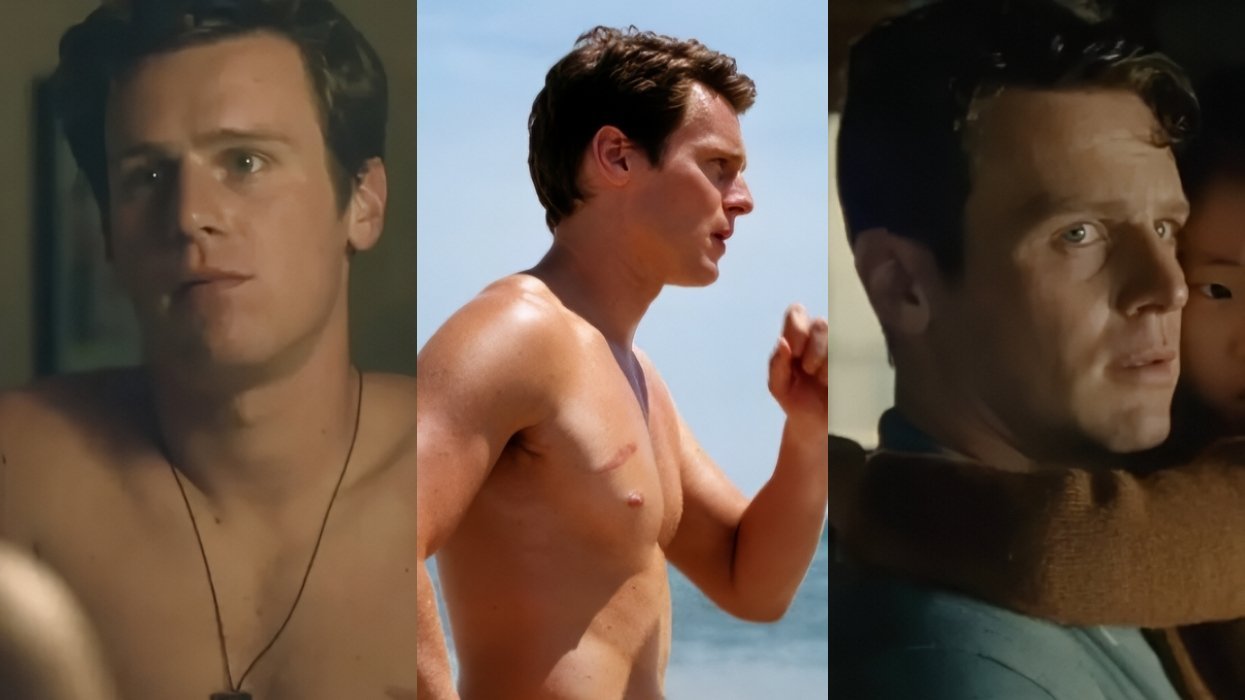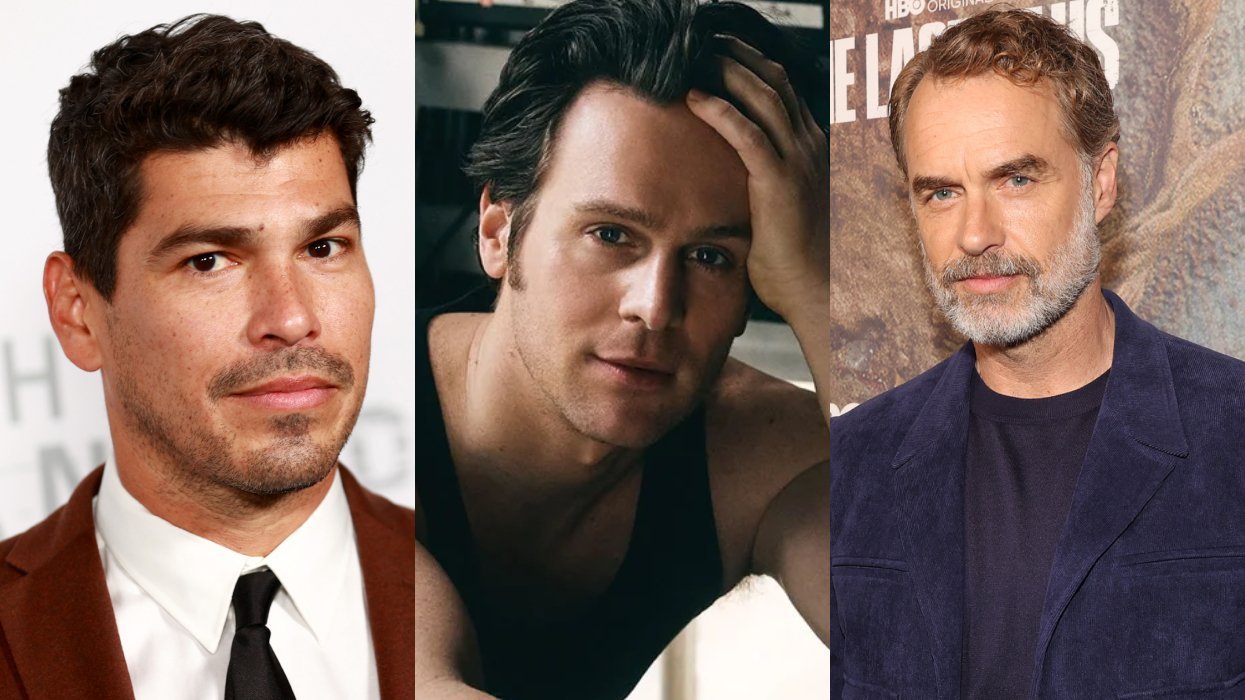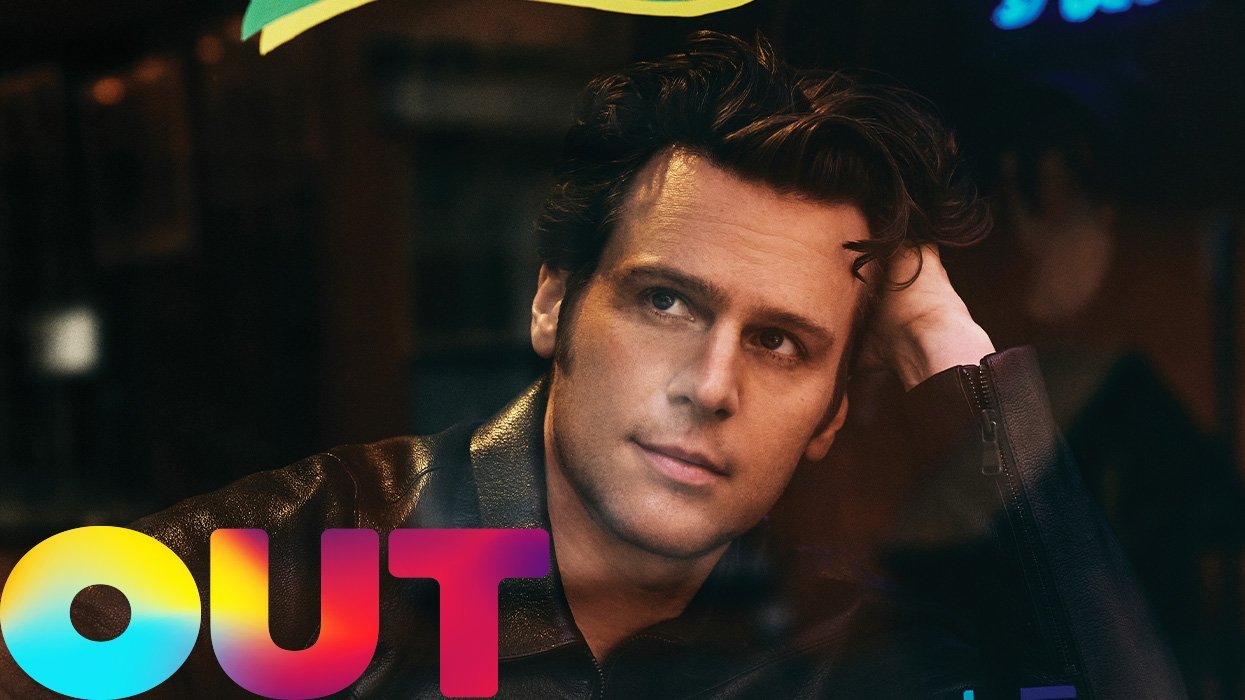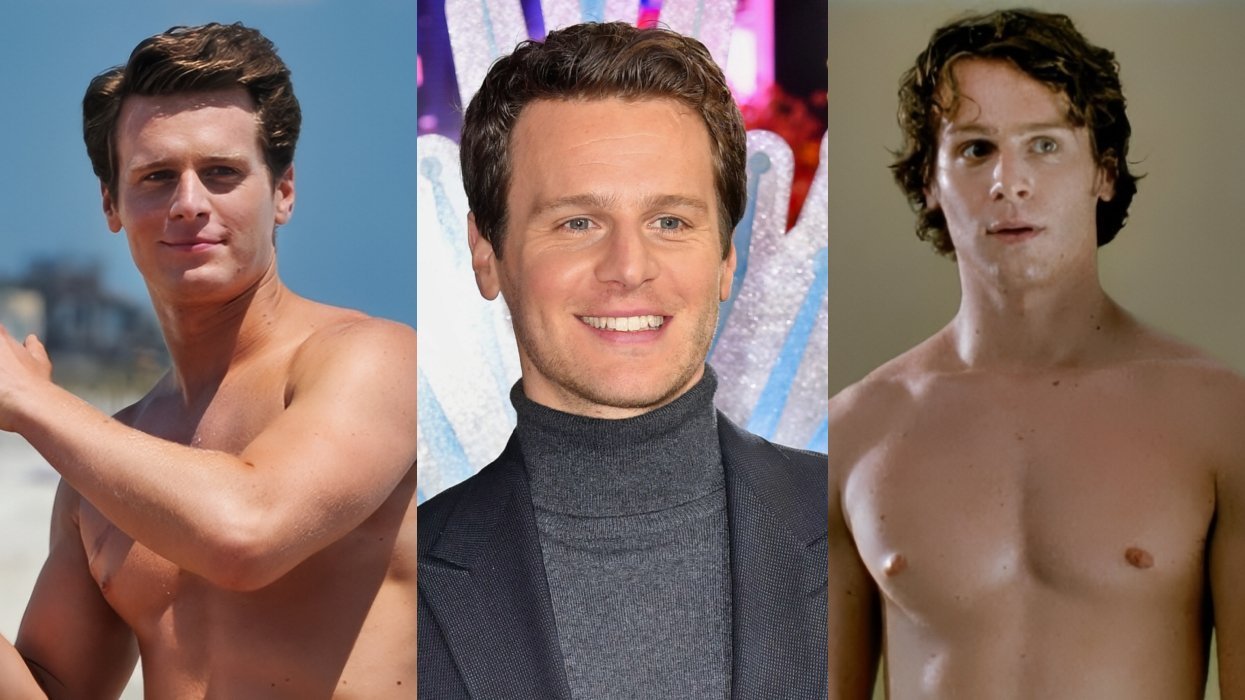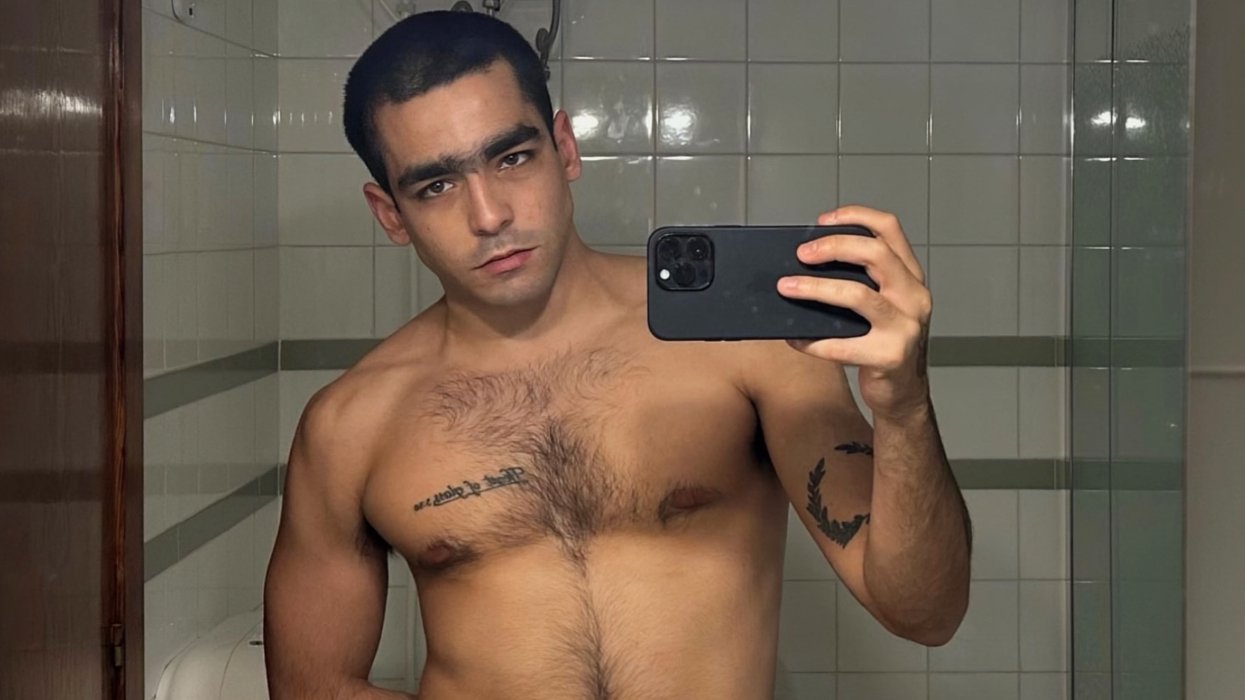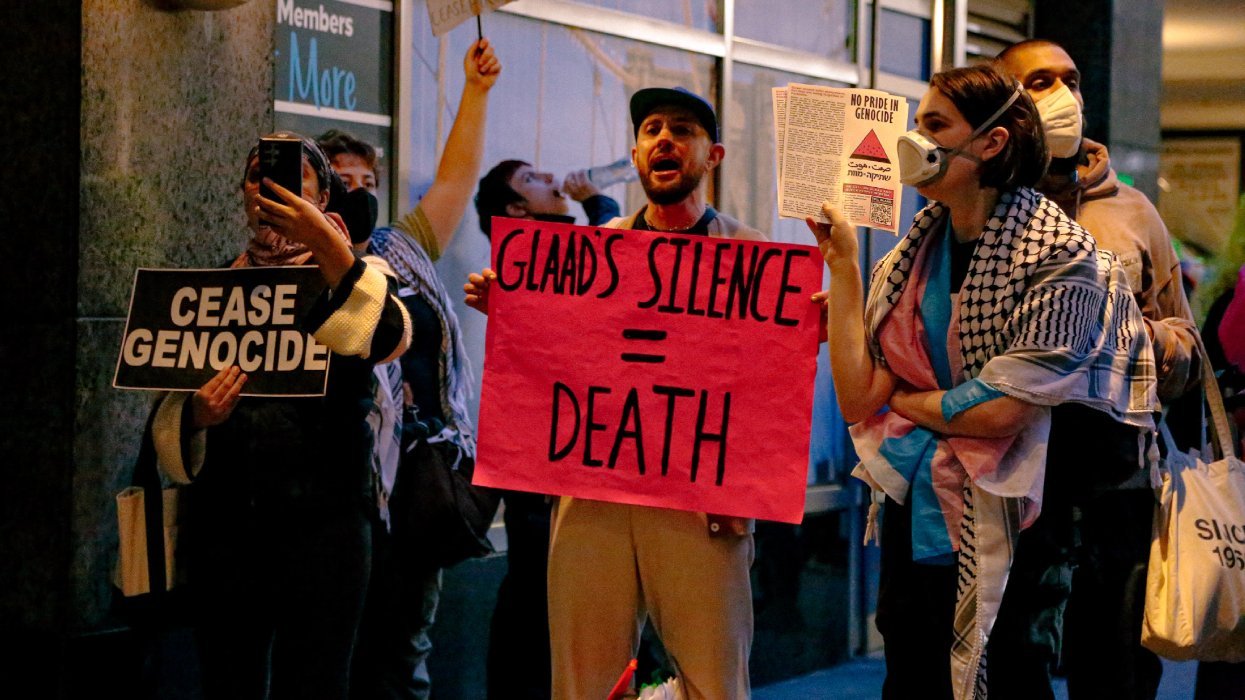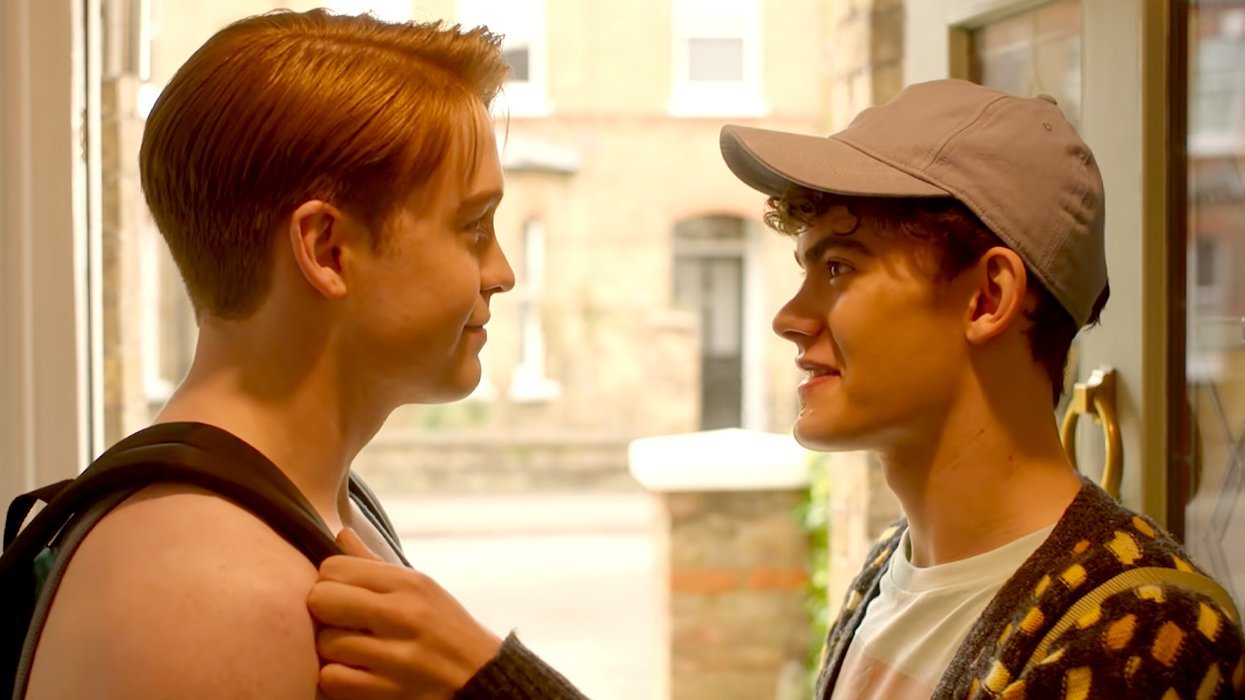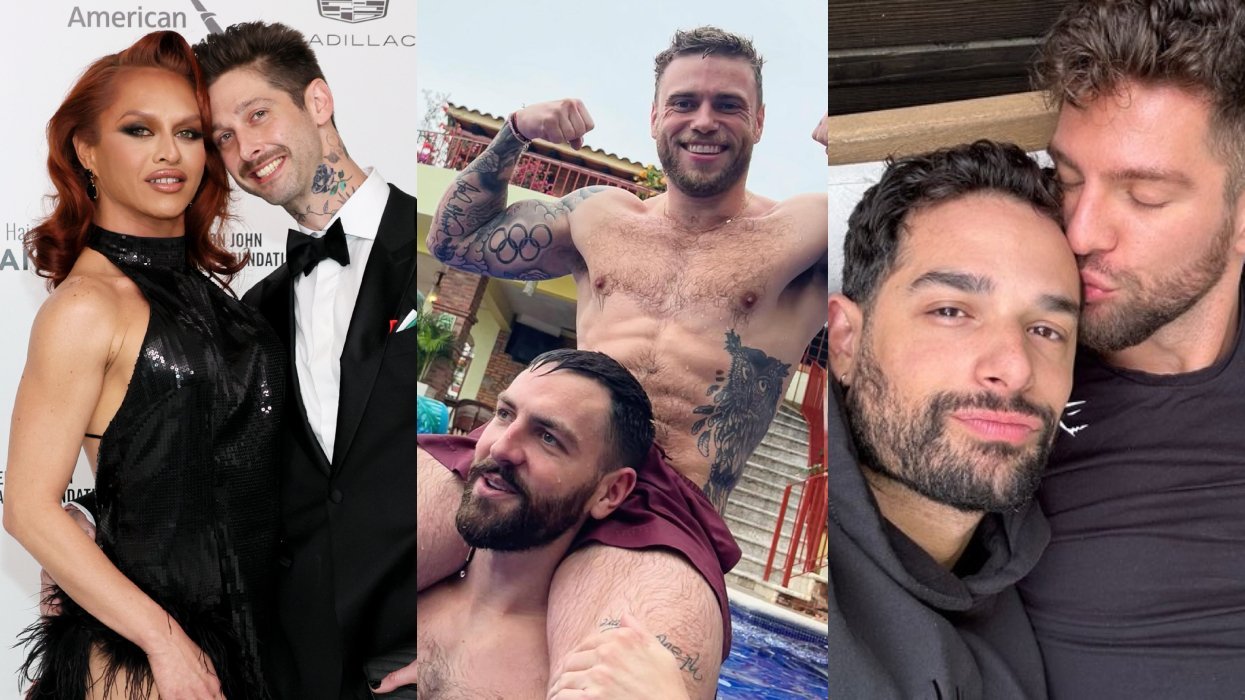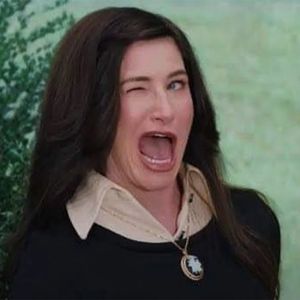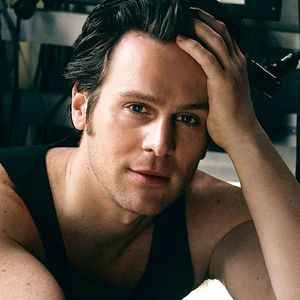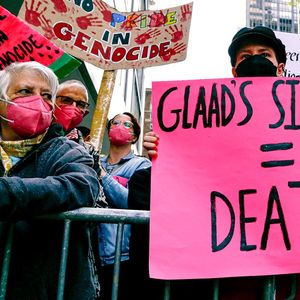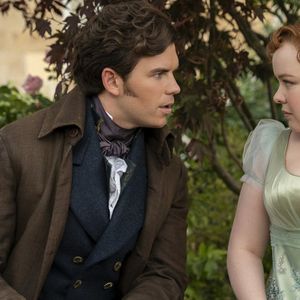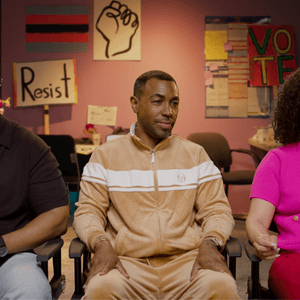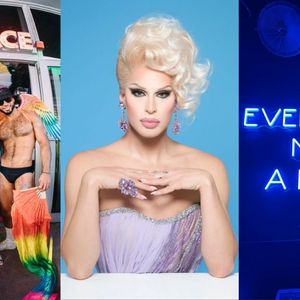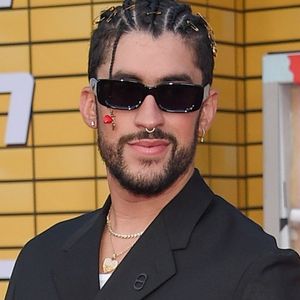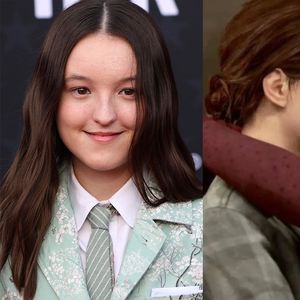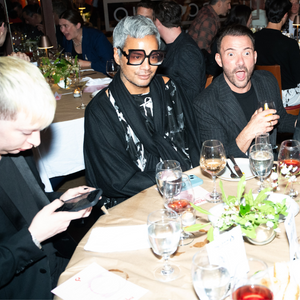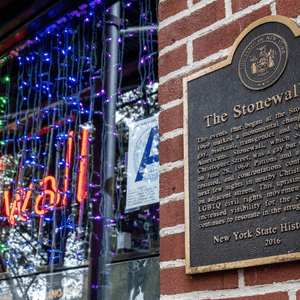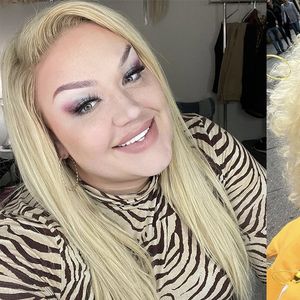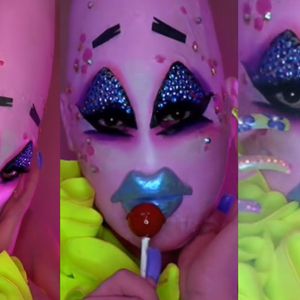There are few films as indelible to 90s pop culture as Pretty Woman -- it's a film that has lived on in the iconic moments we've remembered and recycled for 30 years -- Julia Roberts' red dress, the moment of surprised laughter when Richard Gere snaps the jewlery box closed on her hand, and of course, "Big mistake. Huge." Now the beloved film has been given new life on Broadway in Pretty Woman: The Musical, with a soundtrack of 90s rock power anthems by Bryan Adams and a book co-written by the film's director, the late Garry Marshall.
OUT caught up with director and choreographer Jerry Mitchell about everything from translating those iconic moments for the stage to the relevance of Pretty Woman in the era of #MeToo.
OUT: For a show that's very faithful to its source material, one very specific change that really stuck with me was in the scene towards the end when the character Stuckey tries to assault Vivian and while in the movie he punches her, in the musical she punches him. This struck me as very telling about how you updated the show and made it work for a post-#MeToo world.
Jerry Mitchell: For me it starts when she sings "I Can't Go Back" before she's ever confronted by the character Stuckey and to be quite honest with you, for me, when I saw the movie 30 years ago, and I was a dancer on Broadway, I thought she was the toughest gal in town because she said 'no' when [Richard Gere's character] offered her the car, the keys, the condo, and the money. And she said 'No. A week ago I might have said yes but not now.' So, when you look at that moment for an actor, for a character, for somebody you're working on a show for, interpreting the show for, what is changed for that character in six days that has empowered the character in giving the character a sense of self-worth that she didn't have six days prior, that she can actually turn down someone like that, and I thought that was the most interesting thing about the character to me and why I loved the Cinderella story and why another reason that she's the one who kisses the prince who's asleep and wakes him up and rescues him. It just had so many things that I think are a very modern take that I thought were already in the DNA of the movie and I think I just tried to underline them and bring them out and of course, that song "I Can't Go Back" I think sort of helps do what a musical does at its best when you hear a character sing like that.
What are the specific challenges of adapting something that's so indelible to pop culture as Pretty Woman?
I knew there would be a lot of fans coming and a lot of people coming who were familiar with the original film as I was. Like I said, I fell in love with this movie 30 years ago and always thought it would make the perfect musical. The key for me was having Garry Marshall with me for the first two years of its development, because Garry was very much a part of every decision that we talked about keeping or getting rid of. For instance, [in the musical there is a scene] where [Vivian] learns to dance from [the hotel manager] Mr. Thompson which was learning to use silver ware in the film. And then she goes and then she sits down and has the scene when the snails fly across the room--iconic moment. Everybody loves that moment. It was Garry who said 'You know, I don't know if that's gonna work on stage' and I said 'Well, whether it works or doesn't work on stage isn't really the question. The question is can we use that real estate, that time to tell something more musical?' and I said 'I would love to have her dance' and what's happening in that scene in the film is she's charming everyone, all of the people. So, I said 'What if she charmed everyone by dancing?' And Garry loved that. Of course, his mother was a dance teacher. So, that was one of the places we focused on bringing more dance into the show.
What was it about Pretty Woman, specifically, that spoke to you as something that could be adapted into a musical?
The characters were larger than life. Like I said, it's a perfect Cinderella story. It's about a girl--she says in the film 'Don't you want to get out of here?' One of the first things she says to her best friend Kit. And when a character's in a situation and they want to get out of the place, it's a perfect opening of a door to turn that story into something that comes true. I mean it had all the classic beats of structure, of wanting the fairytale, rescuing the prince, upsetting the rules that you can't kiss, no kissing on the mouth, and then finally breaking your own rule. And besides all of that, a incredibly strong character that starts in one place and grows and makes a huge transformation by the end of the play or the musical or the movie.
I don't want to say it's surprising considering the source material, but I think it's a surprisingly sexy show. Was that important for you to retain in the translation from movie to show?
Absolutely. Sexy and romantic. When I first was I asked to do the project, I went back to the film and watched the film a couple more times before I met with Garry Marshall. I do a benefit called Broadway Bares right, to raise money for Broadway Cares/Equity Fights AIDS, so sexuality and sensuality -- not just for gay people but for straight people, for everyone really -- has always been a part of what I love. And the film, the source material, offered a chance to look at that with a hetero couple. So, I thought a lot about my brothers, and their relationships with their wives, and when they met and how they've continued to grow. And I think that the thing that was so appealing to me was that they met and there was immediate sexual attraction, which because they set a rule--no kissing on the mouth, it's too personal -- which by the way, was Garry Marshall's wife Barbara's idea. And then that rule was broken. I found it to be very fruitful in today's world with people and the way sex and love are separated. More so today, I think, with young people then they ever were in the past with our parents and our grandparents. And so I thought it was an interesting thing to be able to do in the musical and embrace the sexuality of it, sensuality of it.
One of the great things that musicals do is replace the closeup shot of a movie where you really get an idea of what's going on in a character's head with giving them the chance to sing what they're thinking. So, how does the show really expand the audience's understanding of these characters' interior lives?
I'll give you one example for me. "Big mistake, huge." Right? And it's a wonderful, wonderful line. I knew I wanted it in the show. I knew it had to be in the show. But what comes after that in the film is this closeup, this sense of confidence, and this girl like 'I did it' and then what is she thinking? And what's thinking and what's on her face and what Brian and Jim came up with, which I love, is she says 'It's not the clothes, it's what's inside.' She got dressed up in the clothes, she went back to that shop, and she told those girls 'You made a huge, fucking mistake' and then she takes that to the next level in the musical and says 'I feel alive, and it's not the clothes that are making me feel this way. It's the confidence that I've gained and the ability to go up and say something to those people who just treated me like shit the other day.' And that closeup, that particular closeup, also the closeup where she shops for the first time, when the girls kick her out, which is musicalized as she's walking down the street feeling she's gotta get out of here, she's in the wrong place. Edward's moments when he's looking at her, Richard Gere's closeups in the film, and looking at her watching TV, which is a song called "There's Something About Her." Many of those, you're absolutely right, it is the moment. It's the moment that becomes a chance in musical theater to express the character's thoughts, often their closeups in films.
Pretty Woman is ultimately -- surprisingly enough for a 90s romantic comedy about a sex worker -- a story about female agency. So, do you think that Pretty Woman is particularly right for this moment that we're having in pop culture?
I personally feel that the character's right for this moment in pop culture. When a character on stage sings 'I'm tired of everyone else defining a woman's worth,' I think that's something that everybody should hear. I also feel that the classic Cinderella story--she's in the ashes and she says 'Don't you wanna get out of here?' but she is the one who makes it happen for herself. And she does it by never giving up on the fact that she wants to get out of that place. So, having the dream, holding on to a dream, having hope is really important no matter male, female, straight, gay, trans. Having the will and having the hope is the thing that you can never let go of.
With Broadway as the medium, what is the power of tourists coming to New York City and people from middle America sitting with their families in a theater and watching a show where a woman who chooses sex work as a career saves herself and lifts herself up. What is the importance of this specific story being given new life and a new chance to impact people?
You just said it. What could be more powerful than seeing someone less than raise themselves up? If you have a son or a daughter and they're in a situation where their life is less than and they want, they have to have hope and they have to have a dream to get out of there. And that's what this musical does. So, you sort of just summed it up beautifully. That's the reason. That's the reason. Garry wanted this musical. He wanted his granddaughters to be able to see this musical. That was something I thought about a lot as I was creating it. I wanted something that a 13-year-old girl, a 13-year-old boy could see and actually realize that the character Vivian is not in a good place in the beginning. And by the end, she's in a great place, because she has discovered her own worth and won't let anyone else define it for her.
Pretty Woman: The Musical opens at the Nederlander Theatre on August 16. Buy tickets here.
